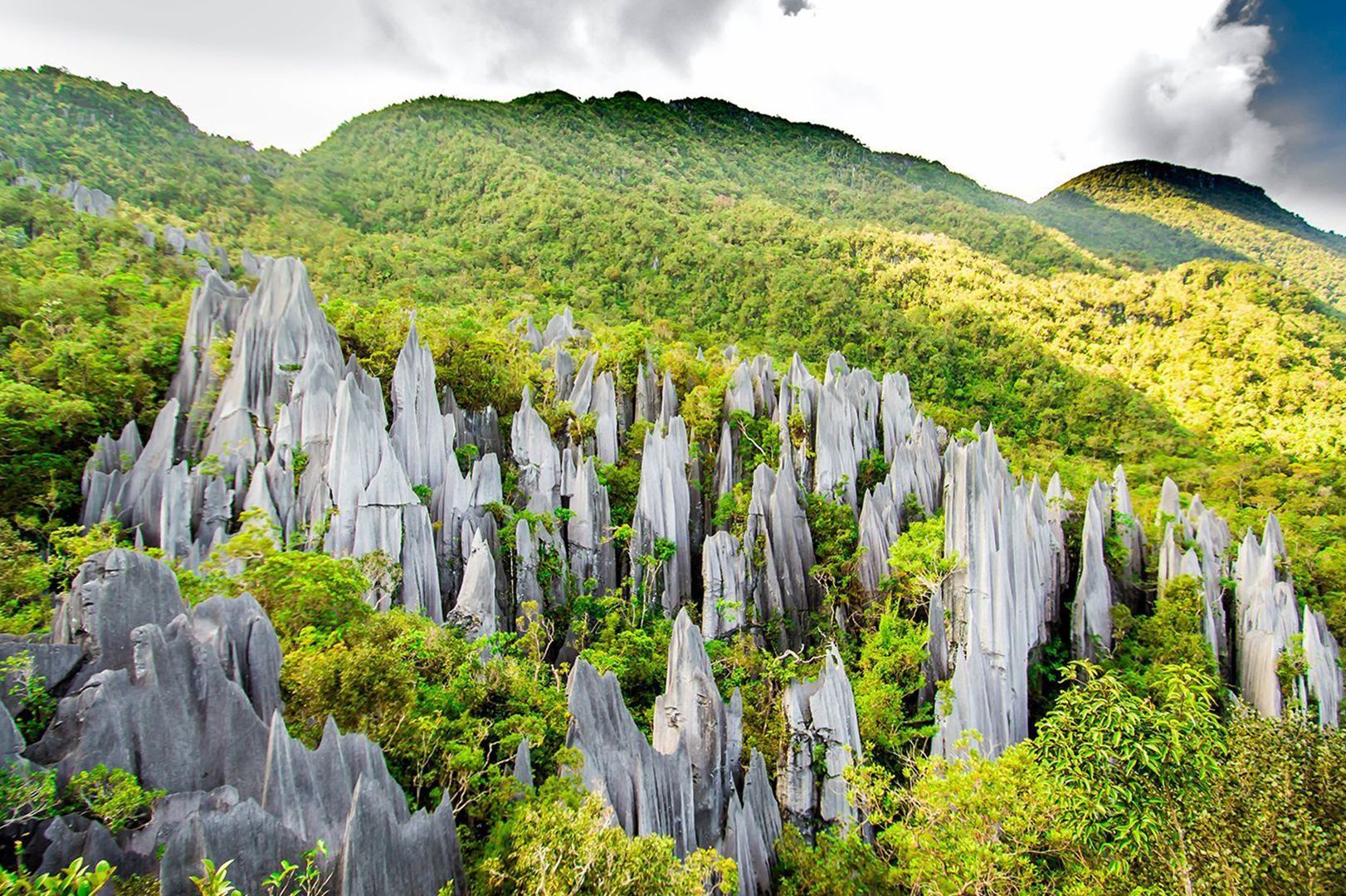
Gunung Mulu National Park (Sarawak)
Gunung Mulu is Sarawak’s largest national park (544 sq km), and also Malaysia’s first World Heritage Area, a status it was awarded in 2000. It is most famous for its limestone cave systems, including the world’s largest natural chamber (the Sarawak Chamber), the world’s largest cave passage (Deer Cave) and the longest cave in Southeast Asia (Clearwater Cave).



Gunung Mulu National Park – A UNESCO World Heritage
Gunung Mulu is Sarawak’s largest national park (544 sq km), and also Malaysia’s first World Heritage Area, a status it was awarded in 2000. It is most famous for its limestone cave systems, including the world’s largest natural chamber (the Sarawak Chamber), the world’s largest cave passage (Deer Cave) and the longest cave in Southeast Asia (Clearwater Cave). The park’s main attractions are the four show caves (Wind, Clearwater, Deer and Langs Caves), all readily accessible by wooden walkways and paths. Other fascinating sights and activities include; a bat observatory; a 480m rainforest canopy skywalk (the world’s longest tree-based walkway); adventure caving trips to some of Mulu’s less accessible caves; the challenging Mulu Summit climb, the spectacular Pinnacles trail, and the historic Headhunter’s trail through remote rainforest scenery.
Situated 100 km from the coast, the park is dominated by three mountains; Gunung Mulu (2,376m), Gunung Api (1,750m), and the as yet unconquered Gunung Benarat (1,585m). Gunung Mulu is sandstone, whilst Gunung Api and Gunung Benarat are formed from limestone and therefore have different geographical features. The summit of Gunung Mulu is covered by moss forests and stunted montane vegetation, whilst razor-sharp limestone pinnacles, some as high as 50 metres, are found on the upper slopes of Gunung Api. The park’s forest ecosystems include peatswamp, heath, mixed dipterocarp, moss forest and montane vegetation; home to thousands of species of ferns, fungi, mosses and flowering plants, including 170 species of orchid and 10 species of pitcher plants, an impressive variety of mammals, birds (including 8 species of hornbill), frogs, fish and insects.
Mulu’s wildlife is often heard but not seen, but visitors are almost certain to encounter bats, swiftlets, cave dwelling insects, snakes, lizards, tree frogs and an abundance of beautiful butterflies.
Visitors may not enter any of the caves or the Mulu Canopy Skywalk without a Park Guide. For most trails, including the Mulu Summit climb, the Pinnacles trail and the Headhunter’s trail, a Park Guide is also mandatory. Bookings and payment of fees can be made at the park office. If you require a Park Guide you need to book the day before. During peak season, guides for popular activities such as the Pinnacles trail may be fully booked weeks in advance.
